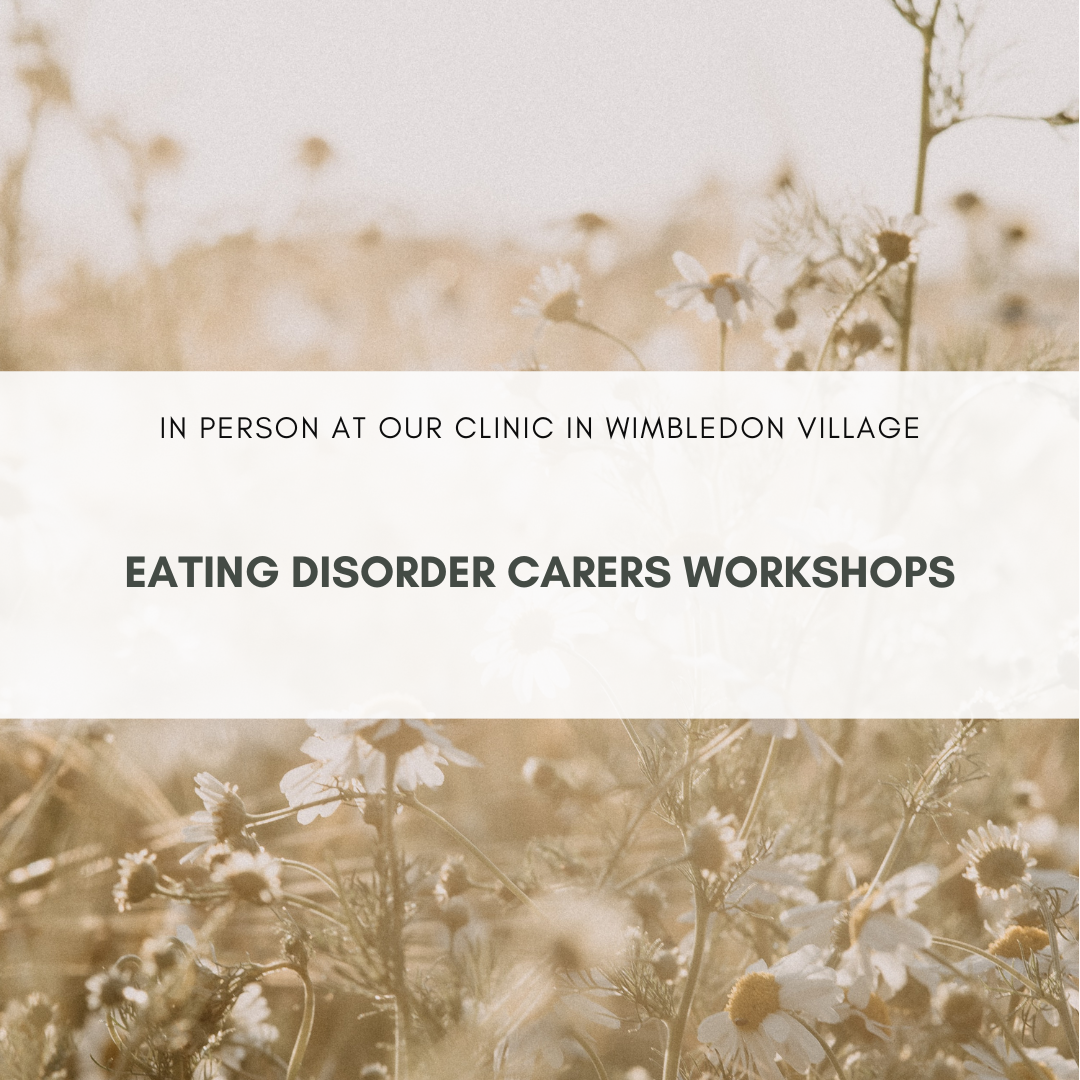Our eating disorders carers support group is aimed at parents, partners or friends (minimum age 18) whose loved one has an eating disorder.
These sessions will enable you to learn more about eating disorders and how to support your loved one towards recovery.
We will cover topics including how to be an effective supporter, how to manage difficult behaviours, how to communicate well with your loved one, as well as learning practical skills for managing distress.
This group is also an opportunity to connect with others who may be going through similar experiences and support you in looking after yourself during this challenging time.
The group will be facilitated by Áine Loi, a specialist eating disorders occupational therapist with over 10 years experience and a keen interest in working with families of those affected by eating disorders.
Sessions will take place at our clinic in Wimbledon Village and run for four weeks.
Workshop Details:
Thursdays at 10-11.30am on 1st, 8th, 15th, 22nd May 2025.
Held at our therapy centre: Ridgway Mews, 18a Ridgway, Wimbledon, SW19 4QN
Cost: £350 per person for 4 sessions.
Please note we have a minimum number of attendees required to run the 4 week workshop, and a maximum of 10. Places to be confirmed following booking.

